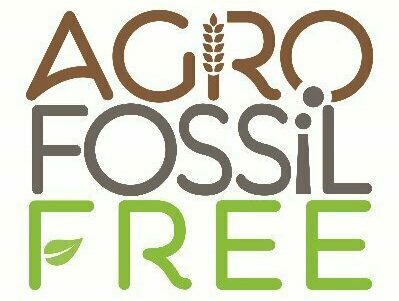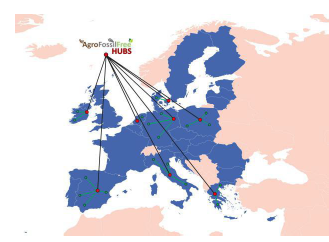Press
The “AgroFossilFree project: Strategies and technologies to achieve a European Fossil-energy-free agriculture
Global agriculture mainly relies on fossil resources for covering most of its energy needs and supporting agricultural productivity in both open-field crop production and controlled environment agricultural constructions. The high fossil fuel use and the deterioration of natural carbon sinks have been related with the anthropogenic impact causing climate change. Novel technologies and strategies related to more sustainable energy production and use have been developed by industry and research entities. However, in the agricultural sector there is still an important gap between such developments and the actual adoption and use of the available tools and practices by the EU farmers, especially for this large number of small and medium producers with limited access to information.
To tackle this issue, the AgroFossilFree project was launched in October 2020 by the Centre for Research and Technology–Hellas (CERTH), project Coordinator, together with 15 other partners from 9 EU countries (IR, NL, DE, DK, PL, ES, IT, BE and EL), with the aim of creating a framework under which critical stakeholders will cooperate to evaluate and promote the currently available Fossil-Energy-Free Technologies and Strategies (FEFTS) in EU agriculture. The AgroFossilFree project will contribute to the High Level EU Strategies (i.e. EU Green Deal and Farm to Fork strategy) as it aims to decrease the use of fossil energy in any farming process from cradle-to-farm gate, while maintaining yield and quality of the end-product. It will also contribute in closing the gap between the available FEFTS with the everyday EU agricultural practices by promoting effective exchange of novel ideas and information between research, industry, extension and the farming community.

Project ambition
The AgroFossilFree project, a 3-year collaborative Coordination and Support Action (CSA) funded with 2 million € by the EU in the frame of the Horizon 2020 programme, will evaluate the current status in EU agriculture regarding energy use and assess existing needs, allowing farmers to optimize agricultural production through more efficient energy use and reduced GHG emissions, resulting in economic, agronomic and environmental benefits. It will specifically create an AgEnergy Platform containing all available FEFTS and a Decision Support Toolkit to propose interventions and financing tools based on user inputs. The project will also create policy recommendations and communicate them to increase visibility and promote the proposed strategies and technologies. Financing opportunities for de-fossilizing EU agriculture will also be investigated and highlighted.
Innovation hubs
AgroFossilFree is based on a “Multi Actor Approach”, including in the consortium not only scientists and researchers but also extension service providers, farmers’ organizations and industrial partners from 9 countries (i.e. innovation “hubs”), which ensures that the end-users of FEFTS innovations are well represented. The diversity of cropping systems and agro-climatic zones covered by the innovation “hubs” will allow exploring the adoption and applicability of a wide range of FEFTS solutions, while capturing a wealth of needs and innovations from end-users across Europe.

The role of REScoop.eu
REScoop.eu is one of the partners in Agro Fossil Free. The publication of the Clean Energy for All European legislative package provides equal opportunities for citizens, local authorities and SMEs, including farmers. The definitions for energy communities allows farmers to actively engage in the future energy system and produce, consume, store or sell energy from renewable sources. REScoop.eu will bring this perspective to the project and work on a strategy to bring the concept of energy communities to rural areas and farmers.